
Copernical Team
China advances space capabilities with latest multirole satellite launch
 In a significant advancement of China's space endeavors, the China Aerospace Science and Technology Corporation (CASC) successfully launched the Yunhai 3B satellite into orbit using the Long March 6A carrier rocket. The launch occurred at the Taiyuan Satellite Launch Center in Shanxi province at 6:51 am on Wednesday, marking a notable achievement in the country's space mission portfolio.
T
In a significant advancement of China's space endeavors, the China Aerospace Science and Technology Corporation (CASC) successfully launched the Yunhai 3B satellite into orbit using the Long March 6A carrier rocket. The launch occurred at the Taiyuan Satellite Launch Center in Shanxi province at 6:51 am on Wednesday, marking a notable achievement in the country's space mission portfolio.
T Spiral magnetic fields observed around Milky Way's central black hole
 In a groundbreaking study, the Event Horizon Telescope (EHT) team has provided new insights into the complex environment surrounding the Milky Way's supermassive black hole, Sagittarius A* (Sgr A*), located 27,000 light-years from Earth. This latest research unveils images of spiral magnetic fields encircling Sgr A*, a phenomenon previously observed in the larger M87* black hole, suggesting pote
In a groundbreaking study, the Event Horizon Telescope (EHT) team has provided new insights into the complex environment surrounding the Milky Way's supermassive black hole, Sagittarius A* (Sgr A*), located 27,000 light-years from Earth. This latest research unveils images of spiral magnetic fields encircling Sgr A*, a phenomenon previously observed in the larger M87* black hole, suggesting pote Solar probe captures turbulence phenomenon in Sun's atmosphere for the first time
 For the first time, the Wide-field Imager for Parker Solar Probe (WISPR), operated by the U.S. Naval Research Laboratory (NRL), has documented the formation of turbulence within solar transients, marking a significant breakthrough in solar physics. This discovery, detailed in the Astrophysical Journal, was made possible by the WISPR instrument aboard NASA's Parker Solar Probe (PSP), highlighting
For the first time, the Wide-field Imager for Parker Solar Probe (WISPR), operated by the U.S. Naval Research Laboratory (NRL), has documented the formation of turbulence within solar transients, marking a significant breakthrough in solar physics. This discovery, detailed in the Astrophysical Journal, was made possible by the WISPR instrument aboard NASA's Parker Solar Probe (PSP), highlighting Mars Express achieves 25,000 orbits
 Celebrating a significant milestone, ESA's Mars Express has completed its 25,000th orbit around Mars, capturing yet another breathtaking view of the Red Planet to commemorate this achievement. The latest image, taken from a high altitude by the High Resolution Stereo Camera (HRSC), showcases the vast Tharsis region, known for hosting Mars's most colossal volcanoes, and features a surprise appear
Celebrating a significant milestone, ESA's Mars Express has completed its 25,000th orbit around Mars, capturing yet another breathtaking view of the Red Planet to commemorate this achievement. The latest image, taken from a high altitude by the High Resolution Stereo Camera (HRSC), showcases the vast Tharsis region, known for hosting Mars's most colossal volcanoes, and features a surprise appear Canada's Niagara region declares a state of emergency to prepare for an influx of eclipse viewers
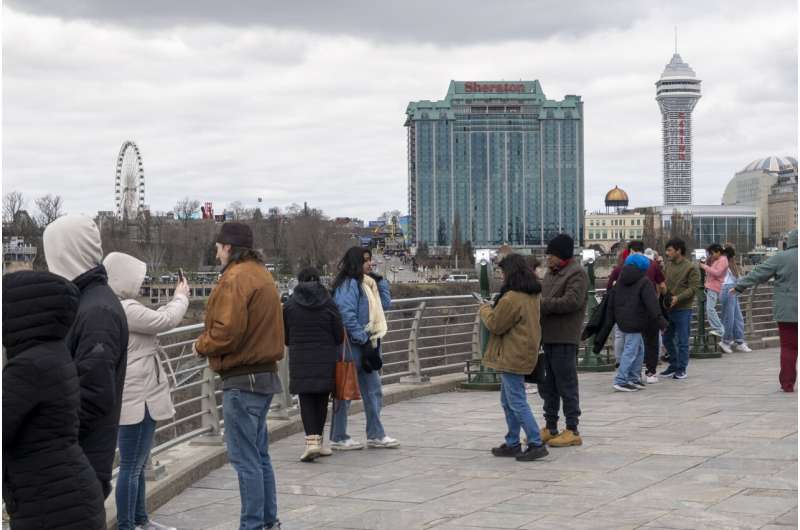
Ontario's Niagara Region has declared a state of emergency as it prepares to welcome up to a million visitors for the solar eclipse in early April.
Curiosity rover searches for new clues about Mars' ancient water
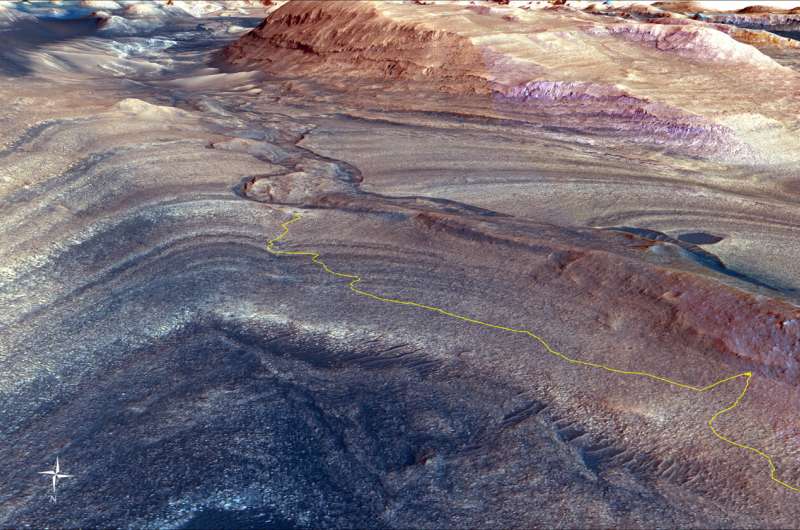
NASA's Curiosity rover has begun exploring a new region of Mars, one that could reveal more about when liquid water disappeared once and for all from the Red Planet's surface.
Mapping the best route for a spacecraft traveling beyond the sun's sphere of influence
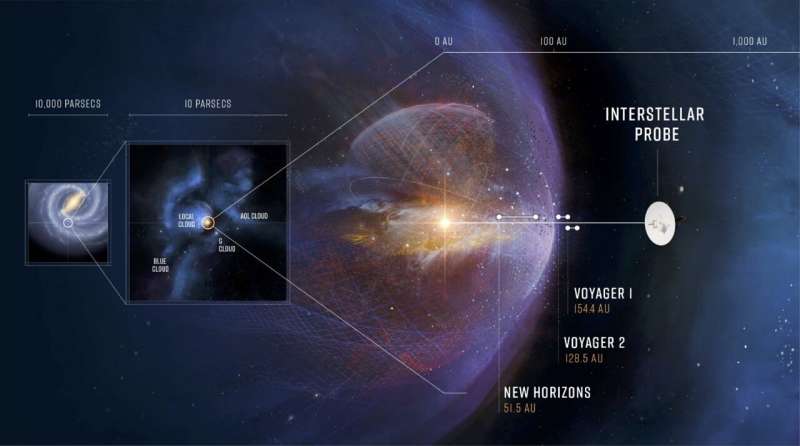
The heliosphere—made of solar wind, solar transients, and the interplanetary magnetic field—acts as our solar system's personal shield, protecting the planets from galactic cosmic rays. These extremely energetic particles accelerated outwards from events like supernovas and would cause a huge amount of damage if the heliosphere did not mostly absorb them.
Currently, the scientific community cannot reach a consensus on the boundaries or contours of this protected space, and they're exploring mission concepts for an interstellar probe that travels beyond the sun's sphere of influence to answer these questions.
Blind people can hear and feel April's total solar eclipse with new technology
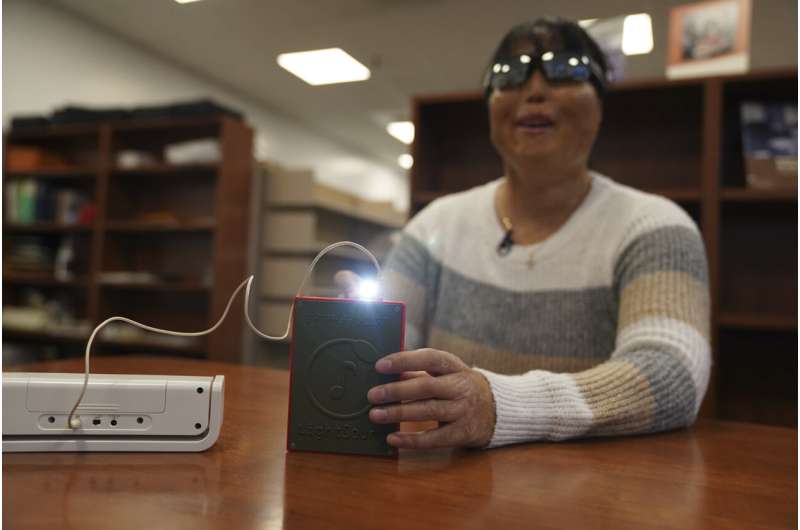
Week in images: 25-29 March 2024
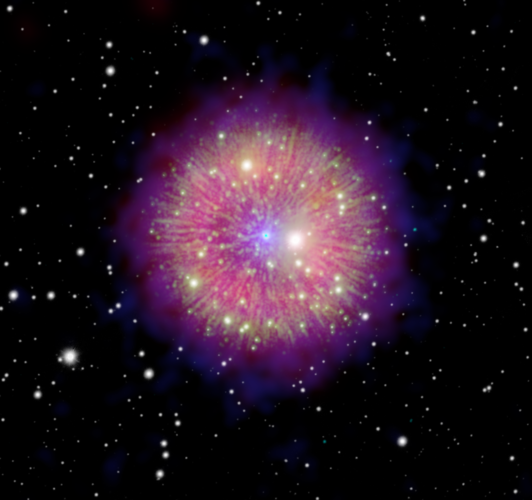
Week in images: 25-29 March 2024
Discover our week through the lens
Technical setback delays launch of final Delta IV Heavy
 Launch of the final Delta IV Heavy has been delayed until further notice. An issue with a liquid pump in the gaseous nitrogen pipeline, crucial for providing pneumatic pressure to the launch vehicle's systems, led to the postponement.
The anomaly prompted a meticulous troubleshooting process by the United Launch Alliance (ULA) team. Work to diagnose and rectify the issue is underway to ens
Launch of the final Delta IV Heavy has been delayed until further notice. An issue with a liquid pump in the gaseous nitrogen pipeline, crucial for providing pneumatic pressure to the launch vehicle's systems, led to the postponement.
The anomaly prompted a meticulous troubleshooting process by the United Launch Alliance (ULA) team. Work to diagnose and rectify the issue is underway to ens 